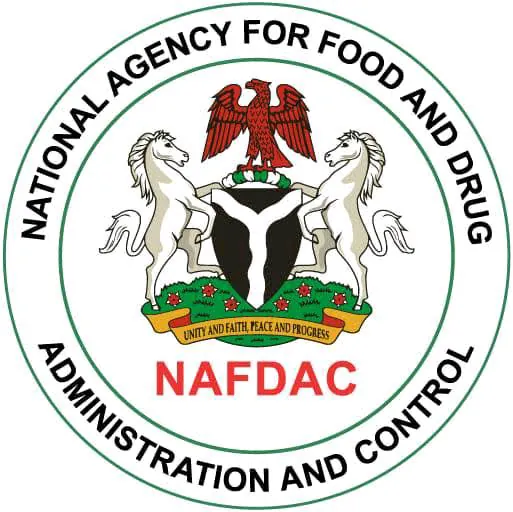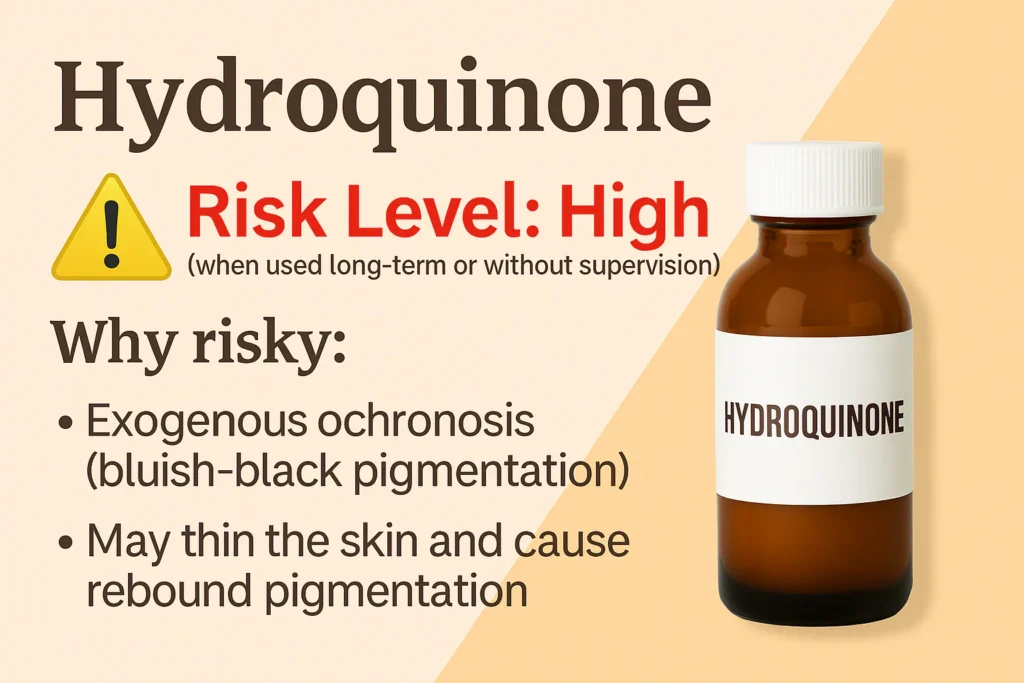The National Agency for Food and Drugs Administration and Control (NAFDAC) has issued a strong warning to Nigerians about the dangers of using skin bleaching creams that contain more than 2% hydroquinone. This warning comes as the use of skin-lightening products continues to rise across the country, especially among young people who want lighter skin tones.
Hydroquinone is a chemical commonly used in creams to lighten dark spots, treat skin conditions like melasma, and even out skin tone. While it can be effective for treating certain skin problems, experts say that using too much hydroquinone can cause serious health problems, including skin damage and even cancer.
What Is Hydroquinone and Why Is It Used?
Hydroquinone works by reducing the amount of melanin, the natural pigment that gives skin its color. In small amounts, it can help fade dark patches and make the skin look more even. However, when used in high concentrations or for long periods, hydroquinone can strip the skin of its natural protection and make it more sensitive to the sun.
According to NAFDAC, the only safe amount of hydroquinone in cosmetics is 2% or less. Any product with more than this amount is considered unsafe and illegal in Nigeria. NAFDAC regularly checks products in the market to make sure they meet safety standards and protect public health.
Mr. Hamis Yahaya, NAFDAC’s Bauchi State Coordinator, explained the agency’s position in an interview.
He said, “Applying creams with hydroquinone contents more than two per cent is harmful. Mixing creams by non-experts is wrong. Hydroquinone affects the health of the users gradually, including causing cancer.”

The Dangers of Excess Hydroquinone
Many people do not realize how dangerous high levels of hydroquinone can be. Using bleaching creams with too much hydroquinone can lead to several health issues, including:
- Skin irritation: Redness, burning, and itching are common side effects.
- Ochronosis: This is a condition where the skin becomes dark, thick, and bumpy. It is very hard to treat and often permanent.
- Increased risk of skin cancer: Hydroquinone can make the skin more sensitive to sunlight, increasing the risk of skin cancer.
- Kidney and liver damage: Long-term use can affect these important organs.
- Weakening of the skin’s natural barrier: The skin loses its ability to protect itself from infections and harmful rays.
Experts warn that the black color of African skin provides natural protection against harmful radiation from the sun due to its melanin content. When people use strong bleaching creams, they remove this natural protection, making themselves more vulnerable to sunburn and other skin problems.
Risks of Mixing Creams at Home
Another danger comes from people mixing their own creams at home or buying products from unlicensed sellers. These creams often contain unknown amounts of hydroquinone and other harmful chemicals. Non-experts do not have the knowledge or equipment to mix these products safely, which increases the risk of dangerous side effects.
NAFDAC has repeatedly warned against buying or using unregistered cosmetics. The agency says that only products that have been checked and approved by NAFDAC are safe for use.
The Role of the Media and Public Awareness
Mr. Yahaya also called on the media to help spread awareness about the dangers of using unsafe bleaching creams. He said;
“The media must create awareness in order to stem down the use of cosmetics that would endanger the lives of consumers.”
Many people are not aware of the risks of using these products, especially young women and teenagers who may be influenced by social media trends and beauty standards. Education is key to helping people make better choices about their skin and health.

NAFDAC’s Efforts to Protect Nigerians
NAFDAC is working hard to protect Nigerians from the dangers of unsafe cosmetics. The agency conducts regular checks in markets and shops to find and remove dangerous products. NAFDAC also runs public education campaigns to inform people about the risks of skin bleaching and the importance of using safe, approved products.
If you are not sure whether a product is safe, you can check the NAFDAC registration number on the packaging or contact the agency for advice. It is always better to be safe than sorry when it comes to your health.
Safer Ways to Care for Your Skin
Doctors and skin experts say that the best way to care for your skin is to use gentle, natural products and protect your skin from the sun. If you have dark spots or other skin problems, it is better to see a qualified dermatologist who can recommend safe treatments.
Remember, every skin color is beautiful, and you do not need to risk your health to change the way you look. Healthy skin is more important than lighter skin, and taking care of your body should always come first.
Conclusion
NAFDAC’s warning about bleaching creams with more than 2% hydroquinone is a serious reminder for everyone in Nigeria. Using these products can cause long-term health problems, including cancer and permanent skin damage. The agency urges everyone to avoid unapproved creams, stop mixing products at home, and always check for the NAFDAC registration number before buying any cosmetic.
With more awareness and better choices, Nigerians can protect their health and enjoy beautiful, healthy skin without taking dangerous risks. Let us all work together to spread the message and keep our communities safe.
Stay woke. Stay tuned. Stay with AKEWE NEWS.